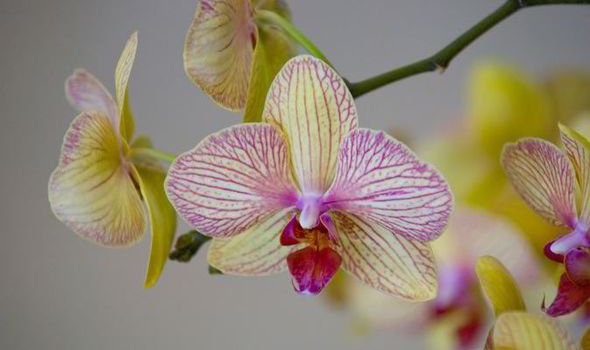Orchids are beautiful, vibrant and popular flowers, which can turn a table, a hallway or a window sill into a beautiful scene. Although they are not the easiest plant to look after, if attended properly orchids will live and flower once or twice each year for many years to come. No flowery language – here are a few easy tips on how to grow orchids to treasure.
Buying
Most garden centres or nurseries will only stock fully-labelled plants, so this should give you a rough idea about the level of care you need to provide for your type of orchid. Further advice can be found by visiting agrarianorganics.com/
There are around 30,000 species of orchids that grow across the world, and each type has different requirements.
The most common type of orchid is the moth orchid, or phalaenopsis, which is popular because it can bloom throughout the year. Others include the dendrobium, which has flowers that can also last several weeks, while the oncidium family includes the popular Dancing Lady.
Be realistic – orchids mounted on sticks require daily attention, and sunlight is imperative for blooming. Is your home hot or cold, and is it humid? If you cannot provide these essentials it may be worth looking for alternatives.

But if you can, these marvellous flowers can look great anywhere in the house, including the living room, dining room, bedroom, and even the bathroom. justaddiceorchids.com said: “The steam and heat from your bathroom shower will keep your plant hydrated and warm. If your bathroom doesn’t have any windows, you should take your plant out of the room for part of the day, transporting it to another area of the home with indirect sunlight. Rotating your orchid between the bathroom and another room of your house also discourages mold growth from too much moisture.”
Watering
Orchids are naturally found in tropical rain forests in Central and South America, thriving near sources of water. Inexperienced gardeners take this to mean they should water their housebound orchid several times a week, which is a guaranteed way of killing it off. Beautiful orchids.com says: “The general rule of thumb for orchids grown in the home is to water every five to 12 days, depending on the type of orchid, the temperature the plant is grown in, and the time of year. During the warm summer months when days are long, more frequent watering is required than in the cooler, shorter days of winter.”
Feeding
It is far more harmful to give your orchid too much food or fertiliser than too little, and many gardeners barely feed them at all. Drip-feeders are cheap and provide a gradual balanced release of nutrition – snip the end, pop them in and leave them to it.
Blooming
The biggest frustration for orchid growers is a lack of flowers, and a single sad vertical stump. The most common reason is lack of light – easily rectified. Strong but indirect light is the best solution, although you can also place a fluorescent light nearby, about 1-2 feet above.
The North of England Orchid Society says: “For warm growing Phalaenopsis, look around your house to find a nice well lit window, ideally facing east or west, and having some shade, i.e. a net curtain, as the midday sun will damage and burn the leaves. Next think about the temperature, if the night time temperature in this position falls below 55 degrees the plant will suffer.”
Pests
Orchids do not suffer from the usual problems and ailments suffered by other garden plants, but it is still worth sprinkling leaves with a slug liquid periodically. Applying isopropyl alcohol (methylated spirits) to leaves will banish greenfly, spider mite and mealybugs, horrible little pests that leave a trail of stickiness that can enable sooty mould growth.
Repotting
Repotting is a real challenge, but has its benefits. Your orchid’s roots may have outgrown its original pot, or the compost may have broken down and is not providing the air the plant needs to flourish. Perhaps you wish to divide it, or you suspect pests in the potting medium.
But heed this advice from everything-orchids.com: “Unless the repotting is urgent and the orchid will be severely harmed without immediate action (rotting medium, pests, massive dead roots, fertilizer build-up), it’s best to wait until the perfect time to repot. Perfect time means when your orchid is active and has sufficient strength to reestablish itself quickly from the somewhat traumatic experience.”
A social affair
It is easy to become addicted to growing orchids and once you are hooked you might consider joining a society, which will advise on feeding, sunlight, and position. You may even move on to showing!
